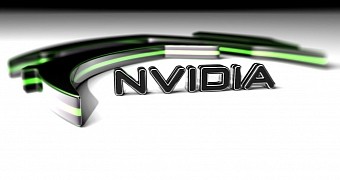Today, June 13, 2016, Nvidia has had the great pleasure of releasing a new long-lived graphics driver for Unix platforms, including GNU/Linux, FreeBSD, and Solaris operating systems.
Nvidia 367.27 is now the latest and most advanced version of the video driver for Linux, BSD, and Solaris platforms, promising to finally implement support for the recently unveiled Nvidia GeForce GTX 1080 and GeForce GTX 1070 GPUs (Graphics Processing Units).
However, it appears that GeForce GTX 1080 and GTX 1070 GPU support is available only for 32-bit, 64-bit, and 32-bit ARM GNU/Linux platforms, as well as 64-bit and 32-bit FreeBSD systems. The Solaris version of the graphics driver has not received support for the new Nvidia graphics cards mentioned above.
VDPAU Feature Set H has been added to the Nvidia VDPAU driver
There are many other interesting improvements implemented in today's Nvidia 367.27 long-lived graphics driver for Unix platforms besides support for the GeForce GTX 1080 and GTX 1070 GPUs. Among them are the addition of a VDPAU Feature Set H to the Nvidia VDPAU driver, bringing hardware-accelerated decoding of 8K (8192x8192) H.265/HEVC-encoded video streams to GPUs that support it.
Moreover, it looks like the Display Device page from the Nvidia Settings Control Panel has been enhanced with support for displaying extra information for supported DisplayPort devices, reflecting attributes that are specific to DisplayPort connections. Moreover, there's now the NV_robustness_video_memory_purge OpenGL extension, which promises to let apps be aware of purged BOs and FBOs contents that reside in memory.
Of course, many other annoying issues that have been reported by users since the previous version of the graphics driver have been addressed, so you should see a little bit of improvement in the overall performance as well, so you should check out the release notes. Nvidia 367.27 is a recommended update for any GNU/Linux 32-bit and 64-bit, FreeBSD, or Solaris user, and you can download the binaries right now via our website.

 14 DAY TRIAL //
14 DAY TRIAL //